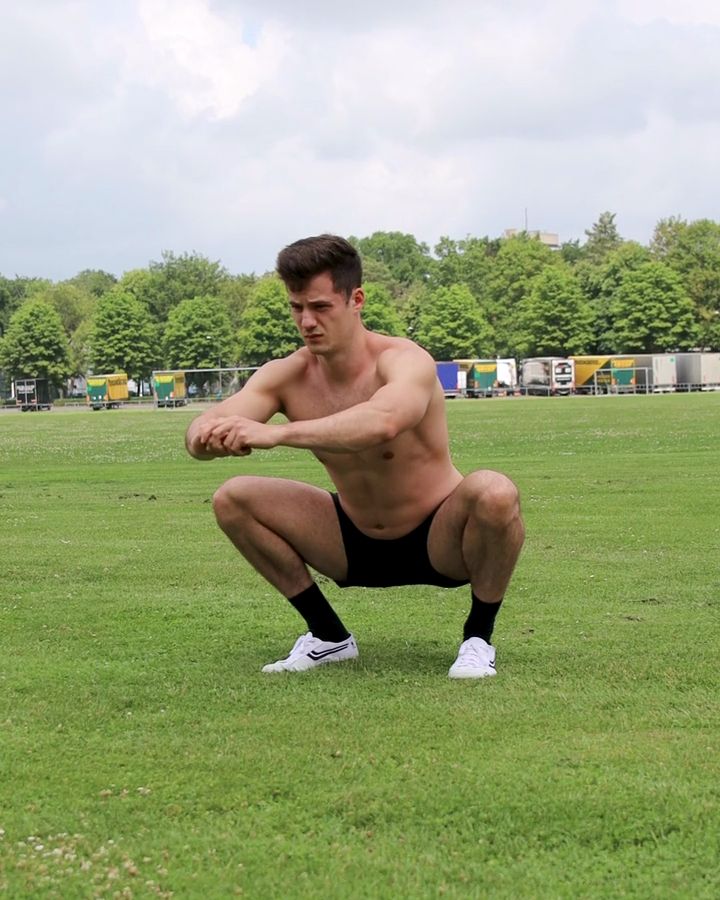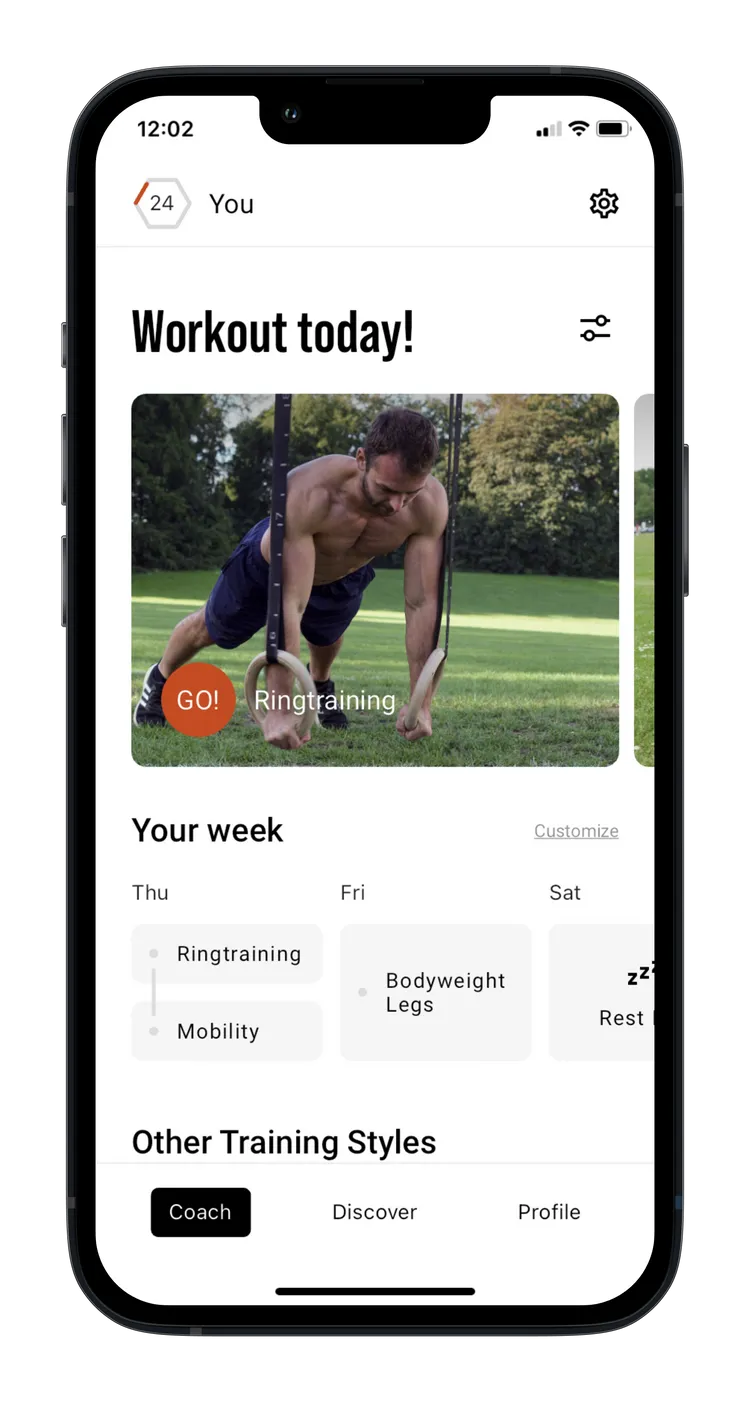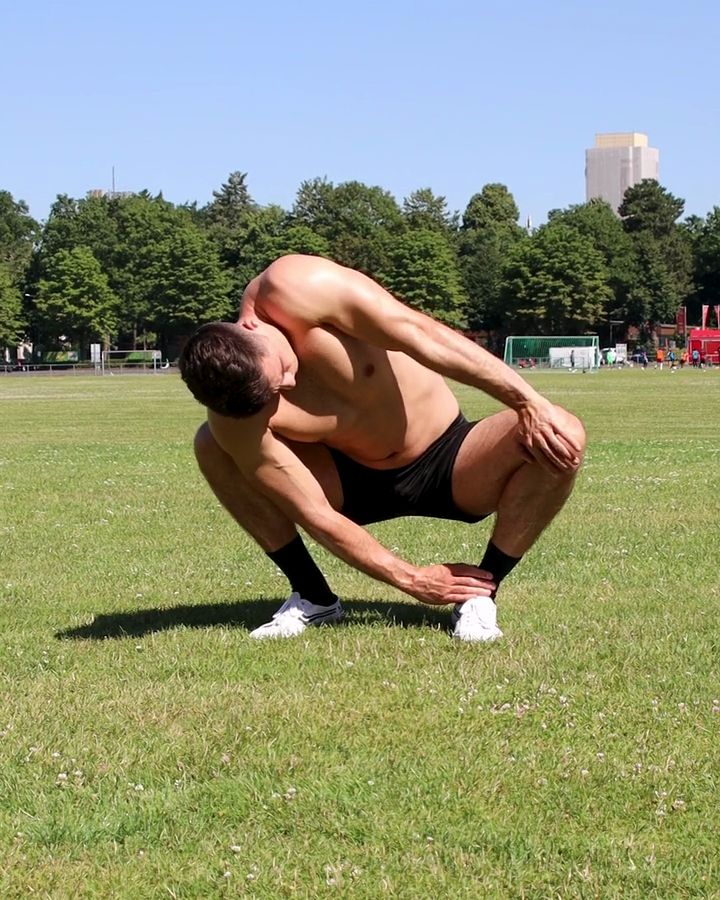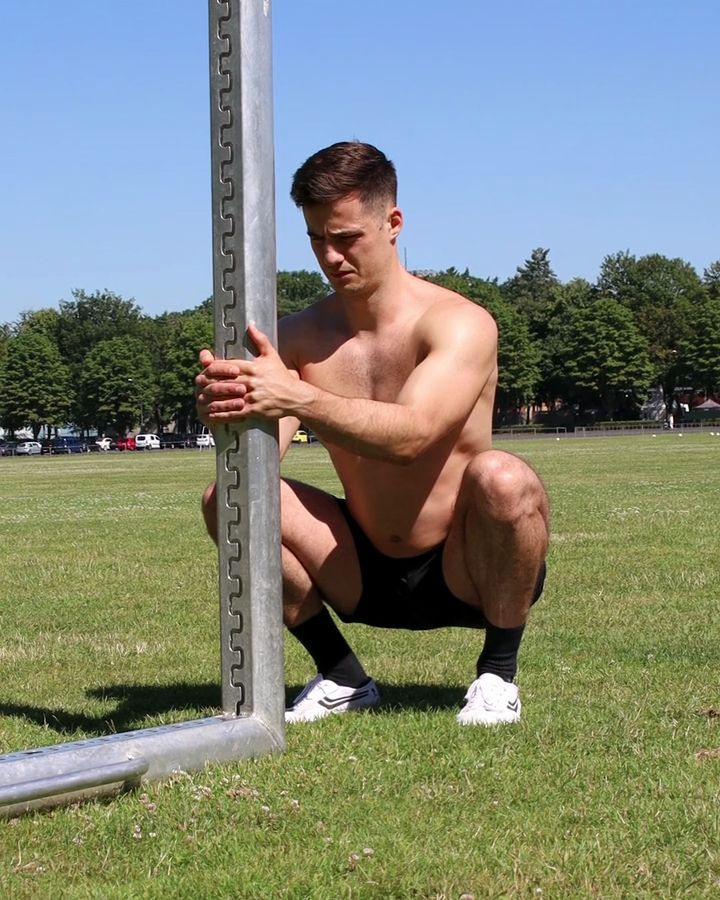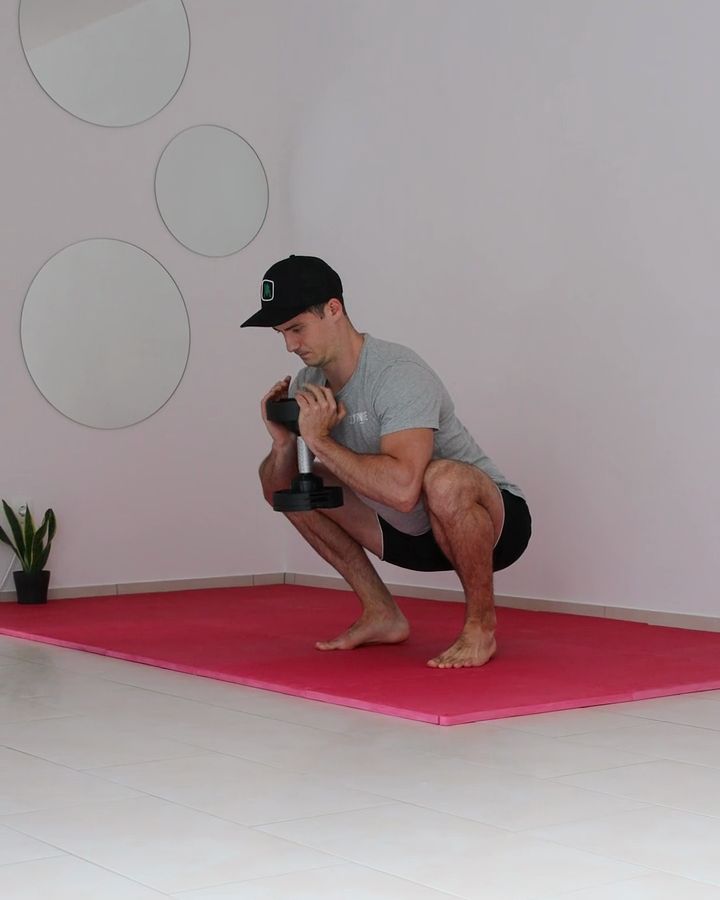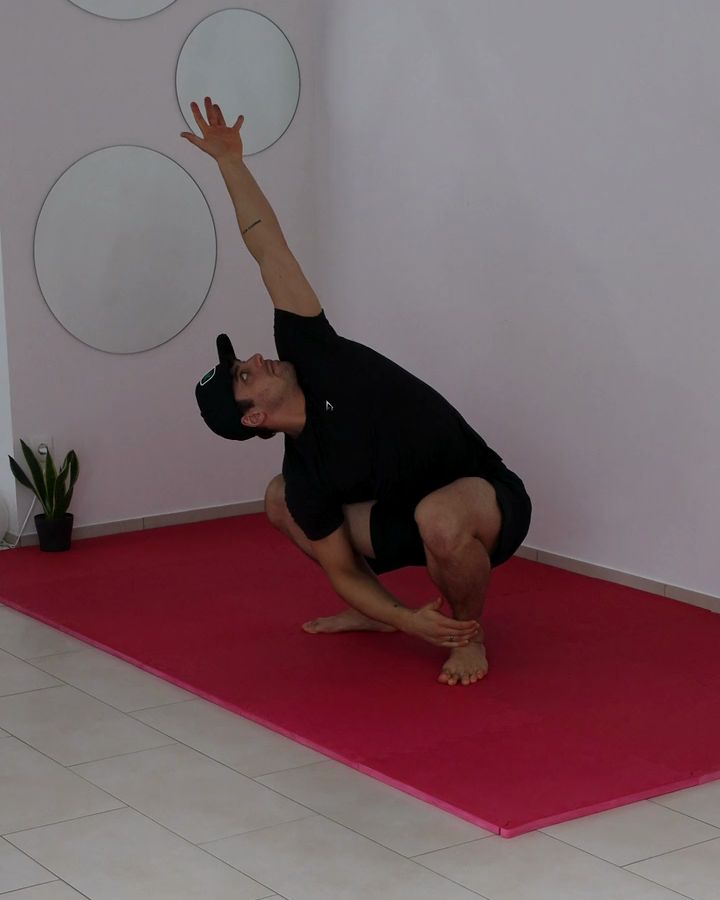Deep Squat
The deep squat (Malasana), also known as the deep squat hold or "ass to grass" squat, is a fundamental exercise that promotes flexibility and stability in the lower body. It primarily targets the thighs, glutes, and lower back while also mobilizing the ankles, hips, and knees. This position improves posture and can help prevent back pain. Compared to a regular squat, you remain in the end position of a squat in the deep squat, placing the knees, hips, and lower back in a comfortable and relieving flexion. It is an excellent exercise to improve lower body mobility and serves as a foundation for advanced exercises like Pistol Squats or Goblet Squats.
Deep Squat - the correct execution
- Start in a shoulder-width stance
- Go into a deep squat
- Make sure your feet are completely on the ground
- Shift your body weight on the whole foot
- Push your knees out
- Try to keep your upper body upright
The exercise Deep Squat is intended to be used as a mobility exercise.
Which muscles are trained by Deep Squat?




Primary trained muscles for Deep Squat
Glutes - The gluteus maximus is the large muscle in your buttocks. It is important for extending the hip, moving your leg backward, and stabilizing the hip joint.
Alternative variants of Deep Squat:
Deep Squat Knee Press
Pushing the knees outward enhances the stretch on the inner side of the legs.
Deep Squat Knee Press - the correct execution
- Start in the deep squat position
- Positinion your right shoulder at your right knee
- Grab your left ankle with your right hand
- Push your left knee outward with your left hand
- Push only as far as you feel comfortable with the stretch
Similar exercises to Deep Squat
Supported Deep Squat
The supported deep squat is ideal for practicing the deep squat when mobility is lacking. Limitations in the ankles and hips often make it difficult to keep the heels on the ground. Using a stable object for support helps stabilize the position and gradually improve it.
This variation is especially suitable for beginners, as it promotes mobility and flexibility. Even those who cannot yet perform the deep squat can use this method to slowly increase their range of motion.
Regular practice strengthens the joints and improves mobility in the hips, knees, and ankles—building a healthy foundation for greater freedom of movement.
Goblet Squat Hold
The Goblet Squat Hold is an excellent exercise to improve mobility in the squat and prepare optimally for training. This mobility exercise requires little time and is particularly effective when performed while holding a light weight. The added weight helps you sink deeper into the squat than you could with just body weight, making the stretch more intense.
Once in the deep squat position, you can enhance the exercise by slowly pushing one knee forward over your toes until you feel a comfortable stretch in your calf. Hold this position for 5-10 seconds and repeat the movement 4-5 times on each side. Make sure to keep your back straight and your heels as flat on the ground as possible.
This exercise is ideal for improving mobility in the hips, ankles, and knees. At the same time, it helps release tension in the lower back muscles and stabilizes your posture in the squat. After practicing the Goblet Squat Hold, you’ll notice how much smoother and more controlled your squats feel. Give it a try and integrate this exercise into your warm-up routine to benefit from better technique and mobility in the long run!
Deep Squat Rotation
The deep squat rotation is an exercise that enhances hip mobility and thoracic spine flexibility. You enter a deep squat and combine this position with an upper body rotation and arm extension. This exercise became well-known through Ido Portal's squat routine and is now a popular mobility exercise in the deep squat position.
This could also be interesting
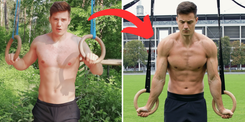
Calisthenics Body Transformation – How to Build a Strong, Lean, and Athletic Physique
Transform your body with Calisthenics! Build muscle, burn fat & achieve a shredded physique with bodyweight training. See real before & after results!

The Best Fitness Apps in 2025: Our Top 10 Recommendations
Don’t miss the best fitness apps of 2025: surprising favorites, free options, and perfect tools for your workouts. Find the ideal app today!
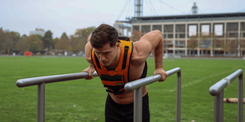
Complete Calisthenics Skills List – 40+ Exercises from Beginner to Pro
Which calisthenics skills should you learn first? And which ones will really help you progress? In this article, you’ll find a complete list of over 40 exercises – from the very basics to the toughest moves for professionals. Each exercise comes with instructions, so you can immediately integrate them into your training.
